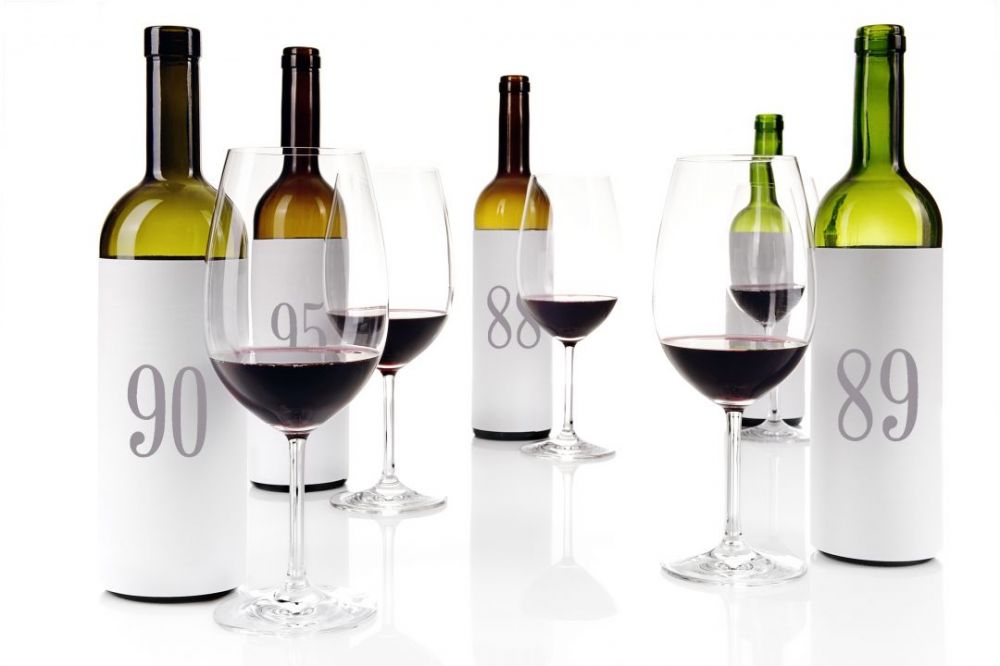Say What?
What is your opinion of wine scores?

With crowded wine shelves, the score has become the easiest way to sort through the clutter and confusion, providing almost instantaneous guidance in our shorthand, hustle-and-bustle world. However, a score lends itself to the idea of a wine being the “best” or “better” than another. When it comes to a wine, what is “best?” I’ve sat through many tastings with other winemakers and wine professionals and rarely is there any consensus. … I think it’s ok to use a score as a guide to sort through the confusion; just keep in mind that the score was assigned by someone who is not “you” and was most likely not assessed in the “situation” in which you are planning to enjoy your wine.
—Tom Fitzpatrick, Alloro Vineyard
Wine scores and awards help consumers make buying decisions. While both tend to be somewhat subjective, they do provide guidance as to the overall quality of a wine. In general, I believe they are beneficial to both wineries and consumers.
—Craig Leuthold, Maryhill Winery
Too often wine scores dominate the dialogue and the conversation of what should be a subjective taste experience. Imagine if in the museums of art, as we opened the doors to art lovers, we scored the art, presuming there is one standard. We all would agree this is absurd. Well, we all agree wine is liquid art, so why succumb to this artifice proposed by the different wine magazines? The answer is that it helps sell wine…
—Mauricio Collada Jr. MD, Cubanísimo Vineyards
Because science has elevated the quality of wine, there are fewer and fewer flawed wines. Back in the early days, it was probably easy for Robert Parker to wax and wane about how great some wines were, especially compared with all the flawed wines that existed at the time.
Today, when you take Oregon Pinots from $45 to $65, for instance, the reviewer is more likely giving you her or his palate impression and bias versus the actual quality level of the wines. Not that this is 100-percent correct, but I’ve done blind tastings — with consumers, by the way — of my wines against some of Oregon’s best Pinots. I routinely put in one well-known Pinot that consistently gets high marks, and it routinely comes in dead last. Does it mean that the reviewer is wrong? Maybe not, but I think the people who read these publications would feel differently.
For me, the bottom line is if it’s a good score, celebrate it, and if it’s a bad score, ignore it. Reviewers are probably wrong more than they are right when it gets down to similar wines.
—Steve Lutz, Lenné Estate
Scores are the best way to render down a three-dimensional product into two dimensions for the sake of expediency.
—Todd Hamina, Biggio-Hamina
If a wine reviewer seems to share a similar palate, then there may be some value in following their reviews, but ultimately, everyone should taste for themselves and decide if they like a wine or not.
—Felice Leonhardt, St. Innocent Winery
I don’t think wine scores are real. What is good to one person is not necessarily good for another. However, that said, having medals and high scores seem to mean something to the consumer, so it’s worth it to go through the [submission] effort.
—Juanita Lint, Plum Hill Vineyards
Two people sip the same wine from the same bottle. One sipper loves it; the other, less so. Are someone’s taste buds more “right” than another’s? If it’s just you and a buddy sipping, you’d likely say “no.” If the other sipper is a top reviewer for a renowned wine guide, then apparently, we collectively deem the answer to be “yes.” But think about the power we give that reviewer. His opinion — OPINION! — can make or break a wine’s sales. Maybe the wine reviewer is jet-lagged, or has a personal prejudice about the varietal or winemaker; even if subconscious, [these factors] surely may affect the reviewer’s mood and “opinion.”
I don’t like [wine scores], but … presented with two [unfamiliar] wines — one with a score in the 90s; the other, in the 80s — to be honest, I’d be swayed to pick the wine with the higher score. And that’s not just me, or there wouldn’t be so many competitions vying for coveted reviews. So, like it or not, higher scores matter in terms of selling more wine.
—Lauren Barnes, Dobbes Family Estate










